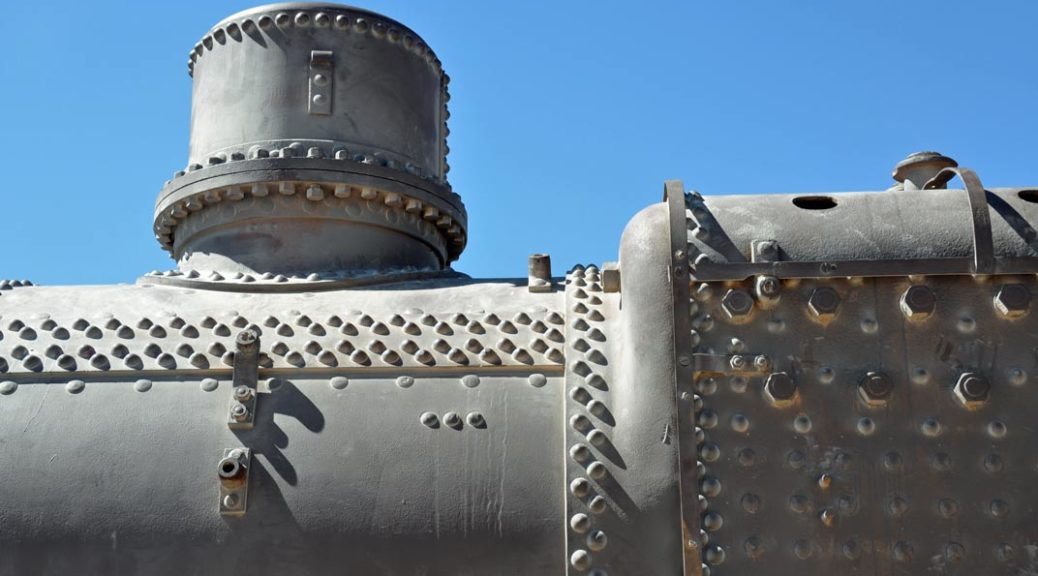The BBC is planning a Brexit Special looking at all aspects of the BBC’s coverage of this extraordinarily divisive issue – specifically whether the corporation has kept to its charter commitment to impartiality, not just in its journalism, but also in its programming.
Do let them know what you think of the BBC’s Brexit coverage across the board – has it shown due impartiality not just in its news journalism, but also in its general programming its dramas and even its comedy shows ” announced on Radio 4 Feedback Friday 23rd March.
And having received the notification I really need to work out what it is that I think of their coverage.
I think that, as regards Brexit, the BBC has in some crucial respects got its approach to these issues wrong. I have not undertaken any kind of systematic study of their coverage – like most people I dip in and out of it, and then only parts of it (R4 Today, BBC2 Daily and Sunday Politics, BBC1 The Andrew Marr Show, BBC1 News BBC1 Question Time, BBC1 Newsnight and BBC News Channel).
I also dip in and out of other broadcasters, mostly Channel 4 News, ITV Peston on Sunday and ITV News. None of those three seems to me to have the same problems as the BBC in their Brexit coverage and I think that comparison is important as it is suggests that other, equally serious, news organizations, which will also have asked the same questions of themselves as the BBC, have come to different answers.
I’m obviously very well aware of the possibility that my estimation of the BBC’s approach is no more than a reflection of my own views and biases about (and against) Brexit. But if I only saw through that prism then presumably I would be one of those who sees the coverage of Sky, ITV and Channel 4 as pro-Brexit, which I’m not.
I’m equally well aware that there are very many people who regard the BBC as being systematically biased against Brexit. But it seems unreasonable to accept the argument that since both Brexit sides accuse the BBC of bias this suggests that the position is about right. Precisely because of the polarisation of views over Brexit, the BBC would attract criticism from both sides almost whatever it did, so that criticism cannot in itself be taken to prove their approach.
A standard way to think about balance is the amount of air time given to each side and whether each side is allowed to reply to the other. This seems to be how the BBC have dealt with Brexit, effectively using the approach adopted to party politics, especially in General Elections, with the two main parties getting equal air time. So, for every ‘remain’ statement there is a ‘leave’ response and vice versa and this supposedly ensures impartiality.
The trouble is, this doesn’t really work very well for Brexit.
Many of the technical issues of law, public policy, political theory and economics around Brexit don’t sit well with normal electoral senses of balance.
Taking economics, whilst it is not a precise science – if indeed it is a science at all – the overwhelming balance of opinion amongst economists, including those employed by the Government, is very clear: Brexit will be economically damaging and the main debate is the extent of the damage. Yet ‘balance’ suggests that the pro-Brexit minority of economists be given equal billing with the anti-Brexit majority.
So the BBC policy of “balance” creates a false equivalence – placing verifiable facts from one side of the Brexit debate against airy assertions from the other to create an illusion of balance. So economists who quote the government’s own predictions of a Brexit penalty of between 2-8% of GDP must be “balanced” with the wildly optimistic predictions of Brexit economist Patrick Minford.
Giving equal time in these circumstances suggests equal weight can be found in each argument which is clearly not the case.
And in any number of brexit panels or discussion shows before the referendum and even now in the panel shows with just one year to go, audience members believed and still believe that the economic evidence is equally split.
Audience members believed there was as much to be said on one side as the other and so voters might as well toss a coin on the economic issues. This seemed to be true regardless of whether the people were for, against or undecided about Brexit and I believe was a direct result of the ‘balanced’ approach to reporting by the BBC on issues or topics which are fundamentally unbalanced.
As a minimum, the BBC reporter should challenge the outlying view to make clear it is exceptional and by no means mainstream. people are allowed to believe in fairies and fairy tales, but they need to have it clearly explained that this is what they’re choosing to believe. Fairy tales are not documentaries.
There is another and perhaps more subtle point: the boundaries around what was and wasn’t part of the ‘campaigns’ were not clear. This was shown by, for example, coverage of Obama’s ‘back of the queue’ intervention, treated in many BBC bulletins as if it was statement by the ‘remain’ campaign with a response given from a ‘leaver’. Actually,it was an important new fact – the fact being not that Obama was necessarily right in what he said, but this was the view of the US president – to which both sides should have been asked to respond. Not doing so was subtly to endorse a key Leave campaign claim that the opposition was not simply the Remain campaign but the massed ranks of the global ‘establishment’.
Also, beneath this is a deeper and probably much more controversial point: almost all of the factual arguments made by the Leave campaign were untrue (£350M a week for NHS, Turkey is joining the EU etc.) but ‘balance’ required the BBC to treat them as being as valid as the opposing arguments.
Typically in an electoral campaign the division is between competing claims of ‘what we should do’, and those can reasonably be treated equally. They may often draw upon disputed facts, of course, but that’s almost always because the facts are susceptible to reasonable differences in interpretation. It could be argued that maybe the Leave campaign’s ‘take back control’ slogan was of that sort.
What was meant by “taking back control” could be regarded as a matter of opinion and could be treated in that way. Are people talking about border control, about control of immigration numbers?
But the same isn’t true of the £350M claim for well-attested reasons, and indeed the BBC’s Reality Check said so. But what it didn’t do was report as headline news that it was not true in the same way as it would (if necessary) report that the claims the earth was flat are untrue.
Yet, for all the indeterminacy around economics and politics, the £350M claim – which, don’t forget, was one of its headline slogans, is still periodically defended by Boris Johnson and is being recycled as the ‘Brexit dividend’ by the government – was as untrue as saying the earth is flat. It was just a matter of arithmetic, but couldn’t be treated as such by the BBC because it was regarded as a matter of opinion, to be treated in a balanced way.
The consequence was that the ‘let’s take back control’ and the ‘let’s spend £350M a week on the NHS’ slogans were treated in the same way, when they were entirely different kinds of claim even though they appeared to be versions of the same thing (i.e. if we take back control then we can spend £350M a week more on the NHS).
Due impartiality would have led to them being treated differently (one as debatable, the other as untrue); balance meant that they were both treated as being legitimately debatable.
Even if ‘General Election’ approach to balance could be justified during the Referendum, it’s less defensible in ‘normal’ news reporting rather than campaign reporting. Here what matters is what gets reported and what doesn’t and/or with what prominence. Such judgments are invariably difficult and contestable, but my overall sense is, again, that the BBC have erred towards a subtly pro-Brexit stance.
A recent example of under-reporting was the heavily criticised lack of coverage of large anti-Brexit marches in various cities. It’s difficult to be sure, but I think that had comparably sized pro-Brexit marches occurred they would have been more prominently reported. With more certainty, it can be said that other broadcasters gave the marches more prominence, and did so earlier, and that exactly the same criticism was made of the lack of BBC coverage of an anti-Brexit march in March 2017.
There was also a striking lack of coverage and follow up reporting by the BBC of Christopher Wylie’s appearance in front of the Commons culture committee with folders of evidence alleging Vote Leave’s overspend during the referendum.
As Wylie made a convincing case that Vote Leave had distorted our democracy with data and cash, news sites across the world, from Canada to Denmark, began to run the story prominently. But not the BBC, which initially tucked his evidence into a report about Facebook CEO Mark Zuckerberg’s refusal to appear in front of the same committee. The corporation did just enough to cover itself but in reality it was pressing the mute button and that, too, has implications for our democracy.
To take a converse case, last August the BBC gave prominent coverage to the Patrick Minford and Economists for Free Trade (formerly, Economists for Brexit) report claiming huge benefits from hard Brexit. The question arises as to why their work was selected for coverage? It was not new work but based on work that had been reported before the referendum, re-published in new form. Secondly, the underlying work had been heavily and extensively criticised by several leading economists from the LSE and Sussex University amongst others.
Thus, however it was covered, it is questionable whether it should have been covered at all. That is not, as Nick Robinson suggested at the time, a ‘censorship’ argument – every day all kinds of research are put into the public domain but it’s not censorship that very few are selected for reporting by the BBC. I am not certain, but my memory is that no other broadcaster gave any prominence to this story. As a minimum, any coverage of the re-formatted report should have been presented with clear caveats about it’s nature as an economic outlier, closer to fairy tale than fact.
This feeds into a wider issue of the prominent platform given by the BBC to certain pro-Brexit figures. The most egregious example is the joint highest tally of 32 appearances on Question Time by Nigel Farage, which continued even after he ceased to be UKIP’s leader. UKIP being a political party whose membership could probably all fit into a very tiny garden shed.
It has also emerged that the only MEPs who have appeared on Question Time since 2012 are from UKIP, with the sole exception of the equally pro-Brexit Tory MEP Daniel Hannan. UKIP’s voter numbers (at least until recently) may have justified representation on the programme and that since they have had no MPs (except, for a short period, Douglas Carswell who defected from the Tories), it would be to their MEPs that the BBC would have to turn. But that doesn’t explain the absence of the MEPs of other parties.
UKIP has been represented on Question Time in a staggering 24% of the programmes since 2010, compared with just 7% for the Green Party.
And obviously since being nearly wiped out in the last General Election, UKIP’s voter numbers couldn’t justify any appearances on mainstream news programmes.
UKIP aside, the BBC seems to give an extraordinarily regular platform to Jacob Rees-Mogg, and this goes back to well before he was the chair of the ERG which is sometimes given as the justification for the attention given him. He is hardly the only pro-Brexit Tory backbencher, let alone the only Tory backbencher, and yet his presence is ubiquitous on the BBC. Of course, he features on other news outlets as well but – again, it’s only my impression, but something that the BBC could easily verify – to nothing like the same extent. Maybe this isn’t so much pro-Brexit bias as some idea that he is an ‘entertaining character’ perhaps along with Nigel Farage.
If so, that is to miss the serious political intent his persona conceals. At all events, there is no one individual on the remain side to whom the BBC gives the same exposure and this means that even if each Rees-Mogg appearance is balanced with a remainer, the public are not presented with a readily identifiable speaker – another subtle but significant skew towards the Brexiters.
There is another issue about the BBC’s extensive use of Rees-Mogg, especially since the Referendum. He, like other regularly featured Brexiters such as Iain Duncan Smith and Bernard Jenkin, is not a member of the government. The LBC journalist and presenter James O’Brien recently made the point that the government are unwilling to put up ministers to defend Brexit policy.
In their absence, Brexiters outside the government get used instead.
But that is a major failure of political accountability and, as O’Brien says, it would be better to empty chair the government rather than to use proxy spokespeople. For that matter, if such proxies are to be used, why almost invariably look only to the Ultra Brexiters of the ERG? There are, after all, many who support Brexit but in its soft rather than hard variant and by ignoring them the BBC, again subtly, skews not just towards Brexiters but to the most extreme amongst them.
Beyond who is on programmes, there is also a problem in the way that they are interviewed. The first is that of interviewer bias, but again I think this is a far more subtle matter than is sometimes acknowledged. I don’t think it is a problem in itself that journalists in the BBC or elsewhere have discernible political views. We expect them to be serious, thoughtful people and serious, thoughtful people have opinions of their own. I certainly don’t pretend to know for sure, but I have the impression that, for example, Sky’s Faisal Islam and Jon Snow of C4 News are remain-inclined, whereas I have the impression that John Humphrys and Andrew Neil of the BBC are leave-inclined.
Having their own personal views isn’t an issue, but what is an issue is how it affects their conduct. Taking that BBC duo, I have never heard Andrew Neil conduct an interview on Brexit which is not tough and well-briefed, regardless of what side of the debate the interviewee is on. To my mind (and I’m not alone) he’s an exemplar of effective political interviewing, and if I suspect he has opinions I disagree with that’s neither here nor there. John Humphrys, by contrast, inserts his own implicit views about Brexit rather obviously, and that does affect the way he conducts interviews – recent examples include his widely complained about interview with Tony Blair and, most bizarrely, his asking the Swedish Ambassador if Sweden will end up speaking German after Brexit. Humphrys has a particular importance, because he is perhaps the Corporation’s most senior journalist, and Today is an agenda-setting programme, so in a way he is the flagship political interviewer and his conduct has a significant reputational consequence for the BBC.
The second issue about interviews is more structural than personal. Whereas the BBC has some truly excellent journalists specialising in the EU and Brexit – Katya Adler, Adam Fleming and Damian Grammaticus all come to mind– the headline interviews are almost invariably undertaken by generalists. Understandably, they don’t always have enough knowledge to hold interviewees to account on technical issues. To take a basic example, politicians talking – as very many do – about ‘access to the single market’ should always be, but rarely are, taken to task. Everyone has access to the single market, the issue is on what terms. The largely unchallenged use of the term has seriously damaged public understanding, since access is compatible with any and every version of Brexit.
Much the same could be said about persistent confusions on basic issues such as goods vs services, tariffs vs non-tariffs or border control vs freedom of movement. No doubt this is not just a problem for the BBC but it’s notable that, for example, Faisal Islam, Sky’s Political Editor, was able to extract significant new information in an interview with Theresa May last April, precisely because whilst being a generalist (in the sense of covering the full spectrum of politics) he is also very well-versed in the technicalities of Brexit.
It might be said that the issue of specialist knowledge is as relevant for interviewing remainers as it is for Brexiters, and so this doesn’t signify anything for impartiality. But, again, it’s more subtle than that. The Brexiter case is very often that it will be simple, quick and technically easy (e.g. to secure a trade deal) whilst the remainer case is often that it will be difficult, slow and technically complicated. It’s very difficult without specialist knowledge to probe assertions that things will be simple because the interviewer needs to know the complexities to put the counter-case; by contrast, it is fairly easy to probe assertions that things will be complicated since it can be done by putting forward the simplicities as the counter-case. So, in this very subtle way, the high profile set piece interviews are almost invariably easier on Brexiters than remainers.
My overall sense is that what has happened at the BBC, going back over at least the last ten years or so, is that it has been stung (or perhaps worn down) by the very vocal criticism of the anti-EU movement and of the political right more generally. I think that reports alleging liberal-left bias, such as that by the Centre for Policy Studies, relentless accusations of the same charge from the right wing and Eurosceptic press, as well as from insiders such as Andrew Marr, Peter Sissons and, yes, John Humphrys, led it to a kind of ‘liberal guilt’ which has even been described as self-hatred (this as far back as 2006). That sense of a kind of cultural bias
This was the backdrop to the BBC Trust’s impartiality review of 2013, with the UK’s relationship with the EU identified as one key strand for review (the others being religion and ethics, and immigration), and I think that at least since then the BBC has bent over itself backwards to avoid accusations of pro-EU and, in the current landscape, anti-Brexit bias. About time too, its Brexiter critics will say. But there are two problems.
First, the research undertaken for the 2013 review actually showed that the evidence pointed in the other direction, both as regards EU coverage and the other issues, something reflected in the report.
Even so it has led to a need always to compensate for a crime even if it hadn’t actually been committed. So by pushing even a little further away from anything that could be accused of being a pro-EU stance the BBC has actually become more imbalanced.
And the second problem is that, despite doing this, the BBC is still accused of having an anti-Brexit bias reflecting, I think, the fact that for a very vociferous group of people in politics and the media anything other than uncritical cheerleading for Brexit will be regarded as bias against Brexit.
There are legitimate criticisms to be made against the BBC. I suspect that when historians come to tell the story of Brexit they will conclude that the BBC’s coverage played a part in the outcome of the Referendum and of the subsequent process. I think they will conclude that a combination of liberal guilt that grew out of the climate in the years before the Referendum, and of the misapplication of a certain conception of balance during and after the Referendum, led to a subtle skewing of the news agenda in favour of Brexit and/or against remain.
*************************************************************
Contact details:
- email: feedback@bbc.co.uk
- tel: 03 333 444 544
- Twitter:
- Postal address: Feedback PO Box number 67234 London SE1P 4AX











